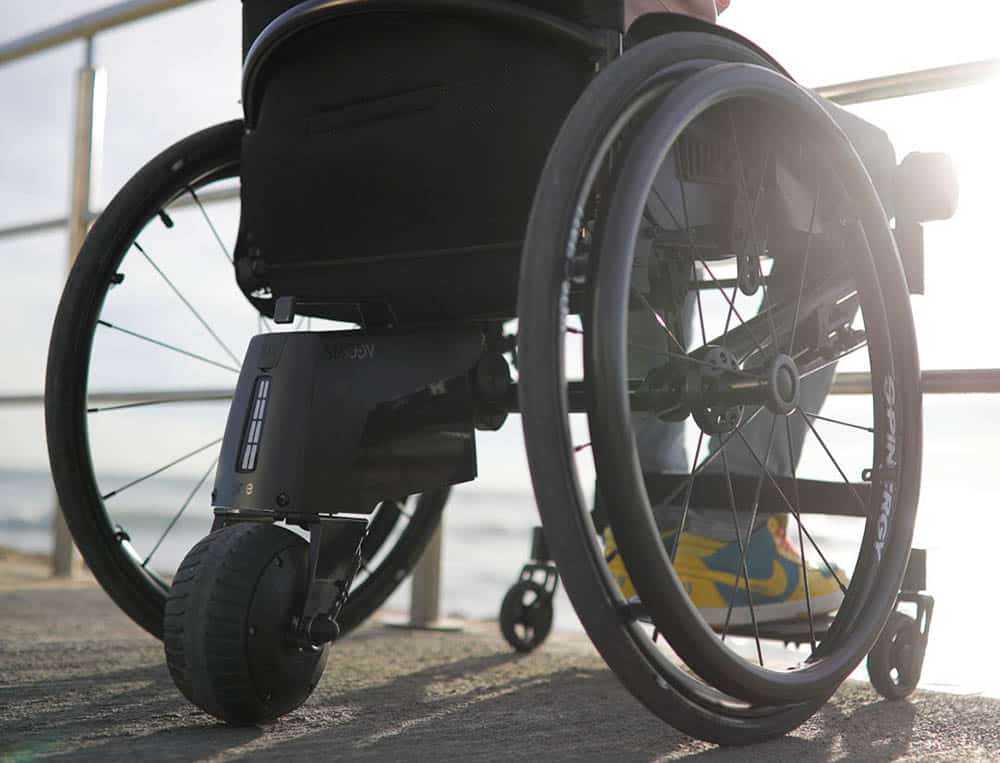Invacare Q2 results reveal impact of coronavirus as mobility & seating sales hit hard

As predicted from its Q1 results, Q2 saw Invacare’s sales of mobility and seating products sharply decline as a result of coronavirus as its global net sales trailed 2019’s results by almost $40m (£30.1m).
In May, Invacare revealed that it had enjoyed a strong start to the year globally, increasing its profitability compared to Q1 in 2019.
The multinational manufacturer of mobility and healthcare equipment warned at the time, however, that the impact of the global COVID-19 outbreak and subsequent lockdowns across multiple markets would put “pressure on profitability” in Q2.
Q2 results for Invacare
Publishing the results from its second-quarter on 5 August, Invacare reported that its net sales decreased by 16.8 per cent to $196.3m (£149.4m) compared to $235.9m (£179.5m) in Q2 2019.
Despite the sharp decline in net sales, the company noted that profitability improved as gross profit as a per cent of net sales increased to 28.9 per cent against 27.6 per cent in Q2 2019.
According to Invacare, the profitability improvement was driven by its ongoing transformation initiatives, including a significant $10.9m (£8.3m) reduction in Selling, General and Administrative (SG&A) expenses fuelled by reduced employment costs.
For Q2 2020, the global mobility aids supplier reported an operating loss of $2.2m (£1.7m), an improvement of $2.3m (£1.8m) against 2019’s $4.5m (£3.4m) over the same period.
In addition, the company emphasised that its adjusted EBITDA improved by $3m (£2.3m) to $6.6m (£5m).
Discussing the Q2 performance, Matt Monaghan, Chairman, President and CEO of Invacare, commented: “I am pleased with our execution as we continue to navigate the current challenging environment while transforming Invacare for the long-term.
“We achieved higher year-over-year Adjusted EBITDA for the 11th consecutive quarter and have established a strong track record of continued improvement, despite a pandemic which reduced constant currency net sales by almost 13 per cent.”
European sales drop as mobility & seating segment slows
Across the different geographical markets, Invacare saw its European sales experience the most substantial drop in Q2 2020, falling to $101.9m against Q2 2019’s $134m (£102m) – a decline of 24 per cent. In comparison, sales dropped by only $3m (£2.3m), from $89.6m (£68.2m) in 2019 to $86.6m (£65.9m) in 2020.
In particular, the company highlighted that quarantine restrictions in its key European markets – primarily the UK, France and Germany – have and continue to be more stringent than in the United States.
As forecasted at the end of Q1, mobility and seating products experienced the steepest decline in sales in Europe, followed to a lesser extent by non-bed lifestyles products.
“Sales of these products were partially offset by growth in bed systems and respiratory products,” stated the company.
“Gross profit declined by $9.6m (£7.3m), or 90 basis points, driven by unfavourable product mix.”
The outlook for the remainder of 2020
Looking ahead to the remainder of the year, Invacare predicted that sales of respiratory products will likely remain elevated while mobility and seating sales are expected to recover as healthcare facilities and elective operations resume.
In addition, sales of bed systems are projected to return to pre-pandemic levels.
Monaghan also pointed to its new mobility ranges it has or will bring to the market.
“In particular, we have developed and are in the process of launching a full pipeline of new and innovative products, such as the MPS Mini Maxx wheelchair with standing capabilities and the SMOOV one power add-on,” he said.
Taking into account a slower recovery in net sales in Europe, the Invacare Chief Executive also confirmed the company’s commitment to continuing its transformation process, including a global IT modernisation programme and its planned plant consolidation in Germany.
“We see encouraging signs that the markets are recovering, albeit slowly, as quotes and orders for mobility and seating products are improving in the major markets we serve. Meanwhile, we continue to experience sustained demand for respiratory products,” he concluded.
“As pandemic-related quarantining restrictions loosen, we expect consolidated net sales to improve sequentially, driven by renewed access to healthcare professionals with new products that have novel features and superior clinical value.”
https://thiis.co.uk/invacare-q2-results-reveal-impact-of-coronavirus-as-mobility-seating-sales-hit-hard/https://thiis.co.uk/wp-content/uploads/2019/07/Invacare-SMOOV-one-lifestyle-03.jpghttps://thiis.co.uk/wp-content/uploads/2019/07/Invacare-SMOOV-one-lifestyle-03-150x150.jpgNewsroomSupplier NewsTrade Newscoronavirus,Europe,Invacare,lockdown,Mobility,MPS Mini Maxx wheelchair,North America,profitability,seating,second quarter,SMOOV one power add-onAs predicted from its Q1 results, Q2 saw Invacare’s sales of mobility and seating products sharply decline as a result of coronavirus as its global net sales trailed 2019’s results by almost $40m (£30.1m). In May, Invacare revealed that it had enjoyed a strong start to the year globally, increasing...Calvin BarnettCalvin Barnettcalvin.barnett@bhta.comAuthorTHIIS Magazine

